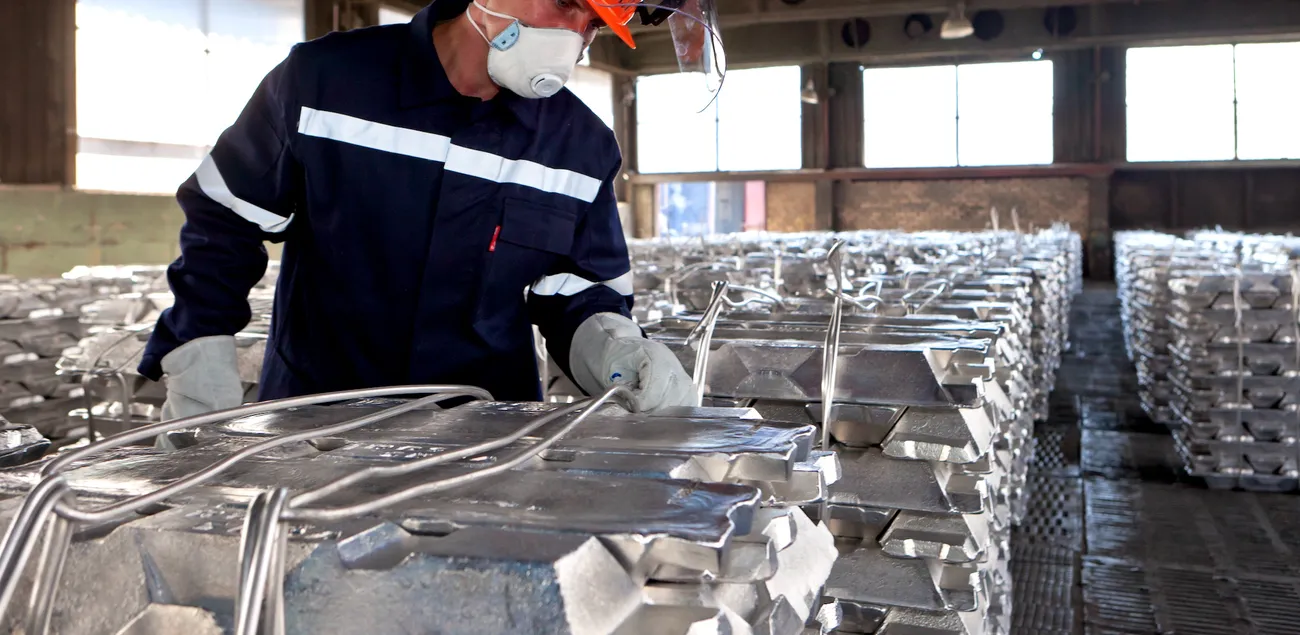
Rusal, Russia’s largest aluminum producer and the world’s biggest primary aluminum manufacturer outside China, has completed strategic investments in Chinese and Indian alumina facilities to replace supply disruptions from Australia and Ukraine totaling approximately 2.8 million tonnes annually. The company acquired a 30% stake in Hebei Wenfeng New Materials for $316 million and agreed to purchase up to 50% of Pioneer Aluminium Industries in India, securing access to 1.4 million tonnes of Chinese alumina production while diversifying supply chains away from sanctioned sources
Supply Chain Disruption Forces Strategic Realignment
Rusal lost access to Queensland Alumina Limited in Australia and the Nikolaev alumina plant in Ukraine, creating what company Chairman Bernard Zonneveld described as a “shock reduction in alumina supplies” during the annual shareholders meeting. The Australian facility represented approximately 20% of Rusal’s alumina requirements before sanctions severed the supply relationship, while the Ukrainian plant provided additional feedstock through long-term contracts that became inoperable due to the ongoing conflict.
The supply disruptions forced Rusal to source alumina from spot markets at premium prices while developing alternative long-term supply arrangements. Global alumina prices increased from $280 per tonne in early 2022 to peaks above $600 per tonne by late 2022, reflecting supply chain constraints and increased demand for non-Russian sources among Western aluminum producers.
Chinese Investment Provides Immediate Supply Security
The $316 million acquisition of a 30% stake in Hebei Wenfeng New Materials provides Rusal with guaranteed access to 1.4 million tonnes of annual alumina production from the Chinese facility. Hebei Wenfeng operates integrated bauxite processing and alumina refining operations in China’s industrial heartland, offering stable supply and competitive pricing compared to seaborne alumina markets.
The investment structure allows Rusal to secure long-term alumina supplies while providing Hebei Wenfeng with capital for capacity expansion and operational improvements. Chinese alumina producers have benefited from domestic bauxite resources and integrated operations that reduce transportation costs compared to Australian or Brazilian suppliers serving global markets.
Indian Partnership Expands Geographic Diversification
Rusal’s agreement to acquire up to 50% of Pioneer Aluminium Industries represents the company’s first major investment in Indian aluminum infrastructure. Pioneer operates an alumina refinery with annual capacity serving both domestic and export markets, providing Rusal with additional supply security while establishing presence in one of the world’s fastest-growing aluminum markets.
The Indian investment complements Rusal’s Chinese operations by creating geographically diversified supply sources that reduce dependence on any single country or transportation route. India’s aluminum industry has expanded rapidly, with domestic alumina production increasing 8% annually over the past five years driven by infrastructure development and manufacturing growth.
Market Context Reflects Industry Consolidation
The global alumina market has experienced significant restructuring following geopolitical tensions and supply chain disruptions affecting traditional trade relationships. Western aluminum producers have reduced purchases of Russian alumina while seeking alternative sources, creating opportunities for Chinese and Indian suppliers to expand market share through long-term contracts and strategic partnerships.
Rusal’s investment strategy aligns with broader industry trends toward vertical integration and supply chain security, as aluminum producers seek to control critical inputs amid volatile commodity markets. The company’s approach mirrors similar strategies by Alcoa, Rio Tinto, and other major producers who have invested in captive alumina capacity to reduce exposure to merchant market pricing.
Financial Impact Supports Production Stability
The combined investments in Chinese and Indian alumina facilities represent approximately $400-500 million in total capital allocation, providing Rusal with secured feedstock for its 3.7 million tonnes of annual aluminum production capacity. The supply agreements offer pricing stability compared to volatile spot markets while ensuring adequate alumina availability for sustained operations.
Rusal’s aluminum production requires approximately 1.9 tonnes of alumina per tonne of aluminum output, making secure alumina supplies essential for maintaining competitive operations. The new supply arrangements reduce the company’s exposure to sanctions-related disruptions while providing access to growing Asian aluminum markets.
Company Background and Market Context
Rusal operates as the world’s largest primary aluminum producer outside China, with integrated operations spanning bauxite mining, alumina refining, and aluminum smelting across multiple countries. En+ Group, founded by Oleg Deripaska, holds a 56.88% controlling stake in the company, while Sual Partners owns 25.52% of shares. The company has navigated international sanctions while maintaining production levels through strategic partnerships and supply chain adaptations.
Hebei Wenfeng New Materials operates as a leading Chinese alumina producer with integrated bauxite processing capabilities and established customer relationships across Asia. The company benefits from China’s domestic bauxite resources and government support for aluminum industry development, providing stable operations and competitive cost structures.
Alumina serves as the primary raw material for aluminum production, requiring approximately 1.9 tonnes of alumina to produce one tonne of aluminum metal through electrolytic smelting. Global alumina production reaches 140 million tonnes annually, with China accounting for 55% of output, followed by Australia, Brazil, and India. The material’s strategic importance has driven vertical integration across the aluminum value chain, while geopolitical tensions have accelerated supply chain diversification efforts among major producers.



